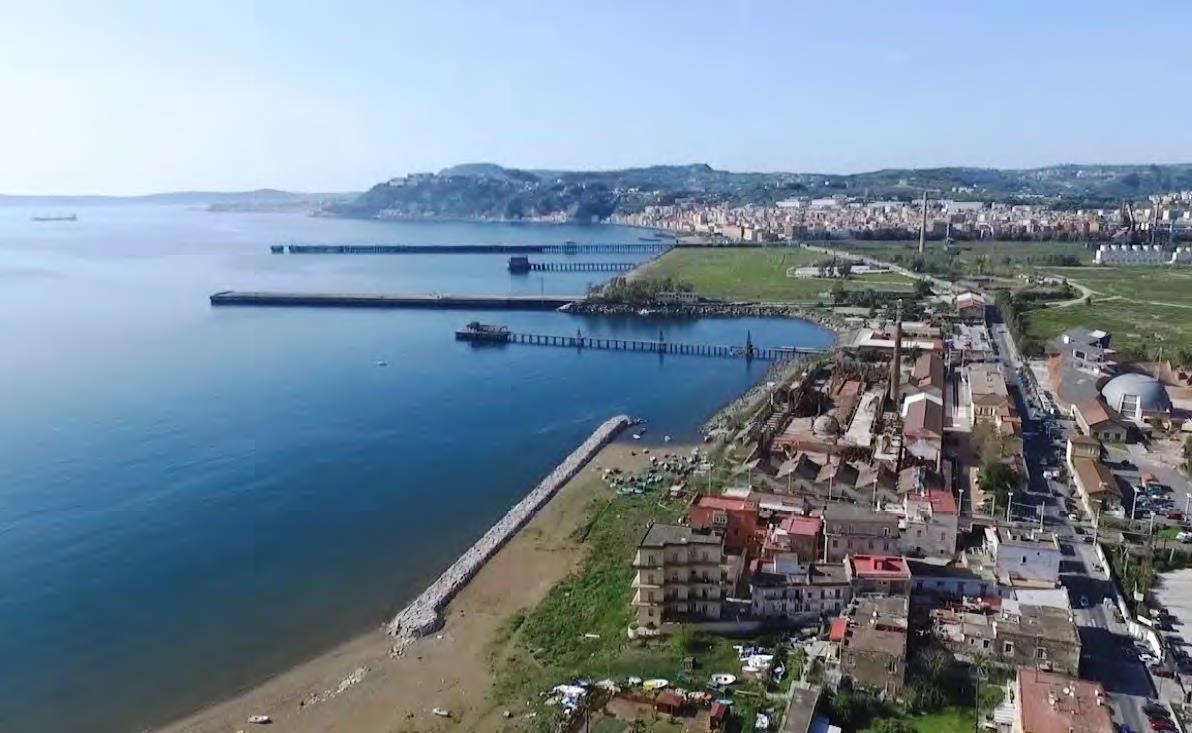Restauro Ambientale e Balneabilità del SIN Bagnoli-Coroglio

Summary
Dismissed industrial activities are responsible for persistent environmental degradation, mainly due to long-term accumulation of xenobitic contaminants in the environment. Such a chronic form of pollution represents a major threat for human health, biodiversity and ecosystem functioning. Necessary environmental remediation practices should however be coupled to restoration plans aiming at revert the degradation trend and give back healthy areas able to provide valuable ecosystem goods and services. Albeit fully integrated into the EU Restoration Agenda, marine environmental restoration is a new challenging issue in ecology, with Italy coordinating MERCES, the first European project in this field. The environmental restoration of Bagnoli-Coroglio Bay is a unique challenge at European level. ABBACO will develop new approaches for the removal and remediation of contaminated sediments and restoration of marine habitats. Actions include: i) identifying the environmental benchmark of the area; ii) assessing its present health status, iii) studying the effects of contaminated sediments on biodiversity and ecosystem functioning (MSFD), iv) assessing the combined effects of multiple stress at a hierarchical level; (v) experimenting innovative methods of transplantation and restoration of key species and habitats, and new biotechnological instruments for the remediation of sediments (bioremediation, bioaugmentation) in degraded habitats. ABBACO will provide novel expertise and stimulate new initiatives within the Blue Economy Agenda. The project results will be achieved by the actions of 6 intermingled work packages (WPs): WP1 Historic overview of the environmental status; WP2 Assessment of contamination and multiple environmental impact; WP3 Effects on biodiversity and ecosystem functioning; WP4 Holistic approach to the study of multiple stress and risk reduction; WP5 Pilot studies of restoration and rehabilitation; WP6 Evaluating the effects of restoration and rehabilitation procedures; WP0 Project management
What we do
We are coordinator of the project and play a key role in each of the 6 project’s WPs.
Partners
1) Stazione Zoologica Anton Dohrn, Napoli; 2) Istituto Superiore di Sanità (ISS); 3) Istituto Nazionale di Geofisica e Vulcanologia (INGV); 4-5) Consiglio Nazionale delle Ricerche (CNR-ISAC, CNR IAMC); 6) Agenzia Nazionale per le Nuove Tecnologie, l'Energia e lo Sviluppo Economico Sostenibile (ENEA); 7) Università Politecnica delle Marche; 8-9) Università degli Studi di Napoli Federico II (DiB, DICEA); 10) Università degli Studi della Campania “Luigi Vanvitelli”; 11) Università degli Studi di Napoli “Parthenope; 12) Consorzio Nazionale Interuniversitario per le Scienze del Mare (CoNISMa)
Research Area
Multidisciplinary Science
Project Lifetime
8th March 2017 to 7th March 2020
SZN Role
Coordinator
Principal Investigators
Luigi Musco, Vincenzo Saggiomo
Co-Principal Investigator
Lucia Rizzo
SZN people involved
Researchers: Bertocci I (WP4 co-leader), Bottaro M, Cardini U, Carotenuto Y, Castellano I, Costantini M, Crocetta F, D'Ambra I, Ferrante M, Hochscheid S, Locascio A, Marin Guirao L, Munari M, Pepi M, Rastelli E, Ristoratore F, Sansone C, Stefanni S, Zupo V
Experienced Researchers: Brunet C, Buia MC, Casotti R, Gambi MC, Iudicone D, Mazzocchi MG, Montresor M, Procaccini G (WP5 leader), Romano G, Sordino P, Spagnuolo A, Tosti E (WP4 co-leader)
Senior Researchers: Palumbo A, Ribera D’Alcalà M, Santella L, Zingone A (WP3 co-leader)
Associate Researchers: Badalamenti F, Vicinanza D, Vega Fernàndez T (WP1 leader)
Technologists: Conversano F, Margiotta F (WP3 co-leader), Patti FP, Sarno D, Terlizzi F, Toscano A, Saggiomo M
Experienced Technologists: Cirino P
Technicians: Cannavacciuolo M, Di Capua I, Lanzotti G, Passarelli A, Zazo G
Post doc: Gallo A, Guglielmo S, Morroni L (many others to be involved soon)
PhD Students: Dell’Anno F
Funding Institution
MIUR - Fondo Integrativo Speciale per la Ricerca (determina CIPE - GU n.56 8.3.2017)
Contribution to SZN: €2,000,000 (MIUR contribution) plus €1,700,000 (SZN co-financing contribution)










